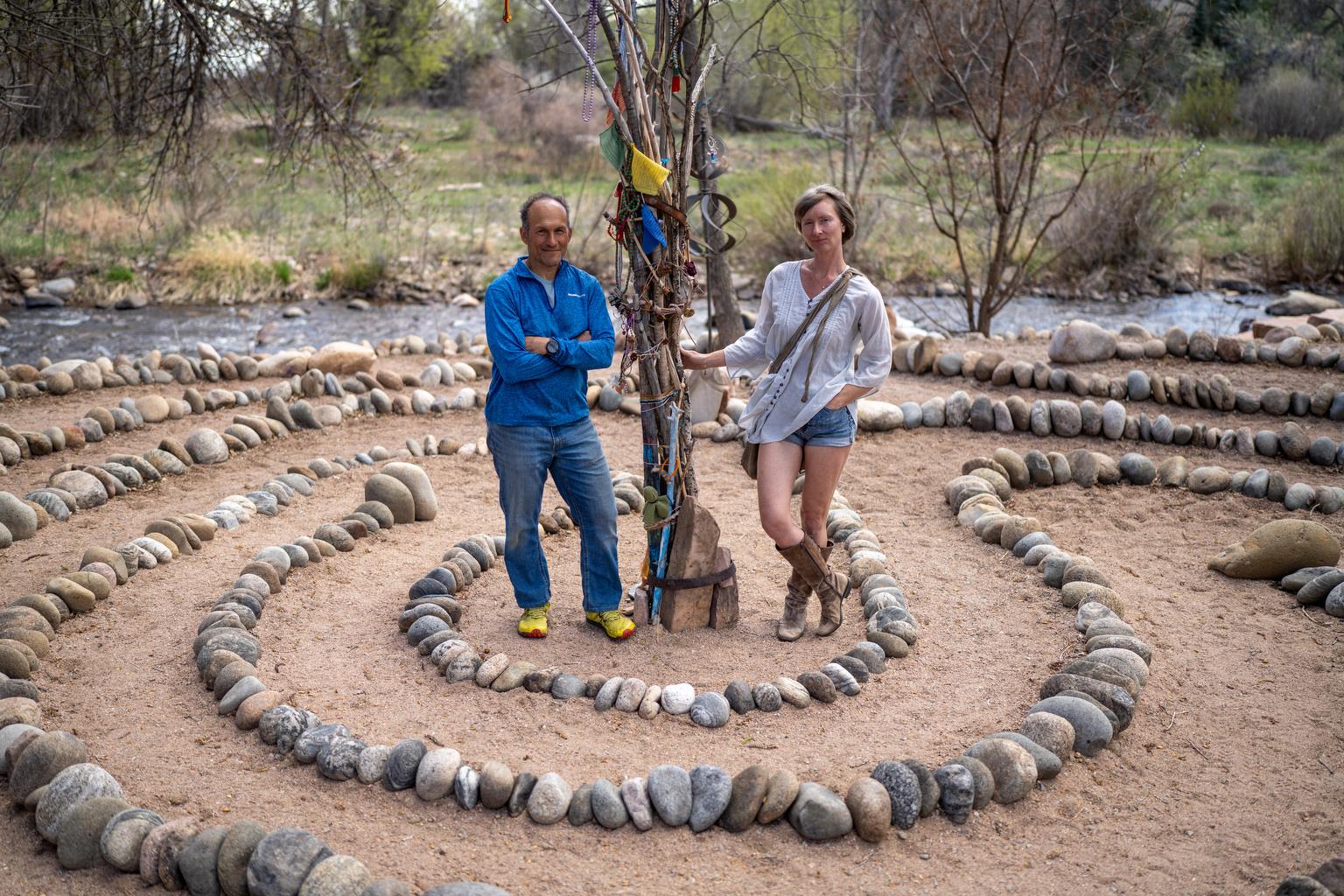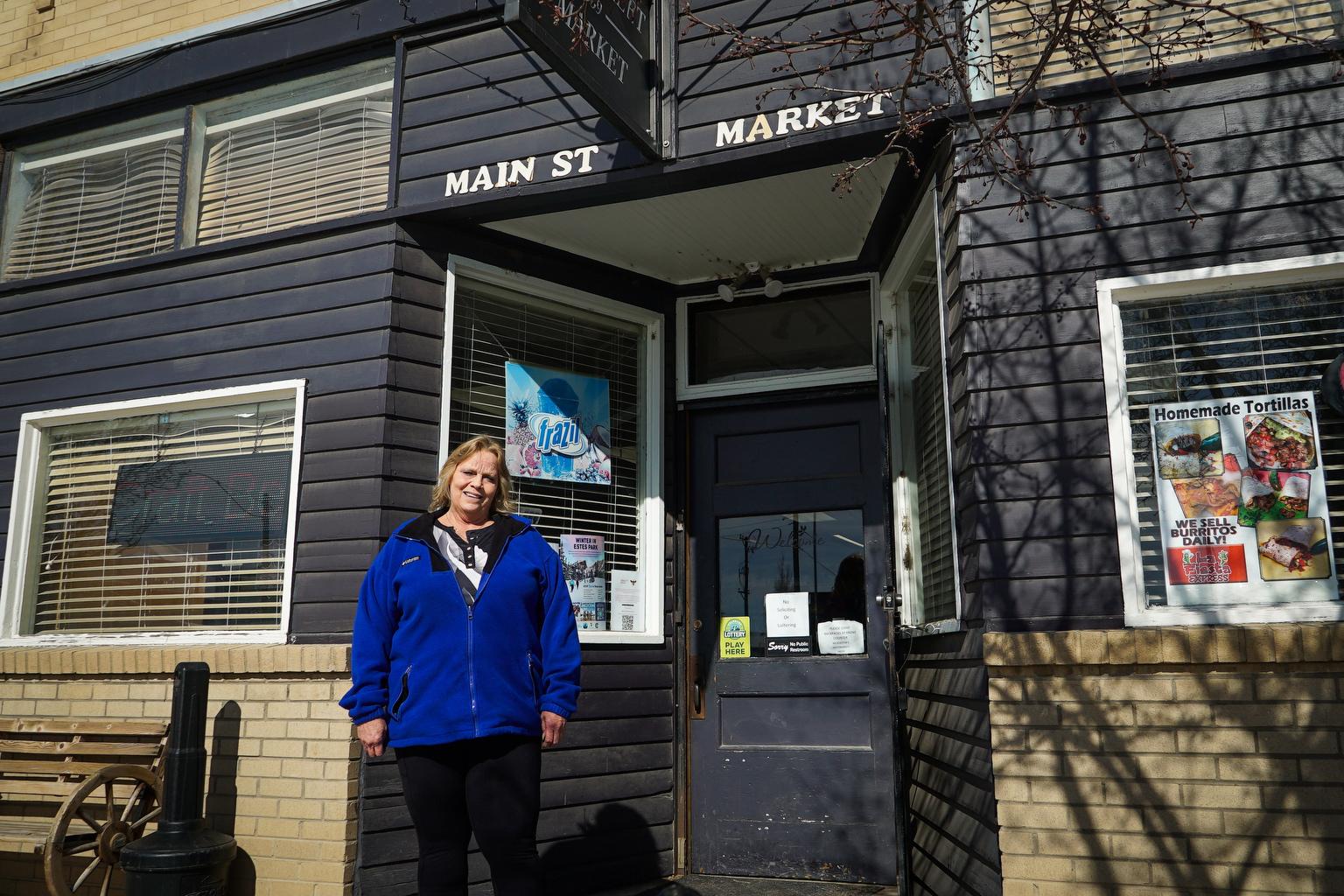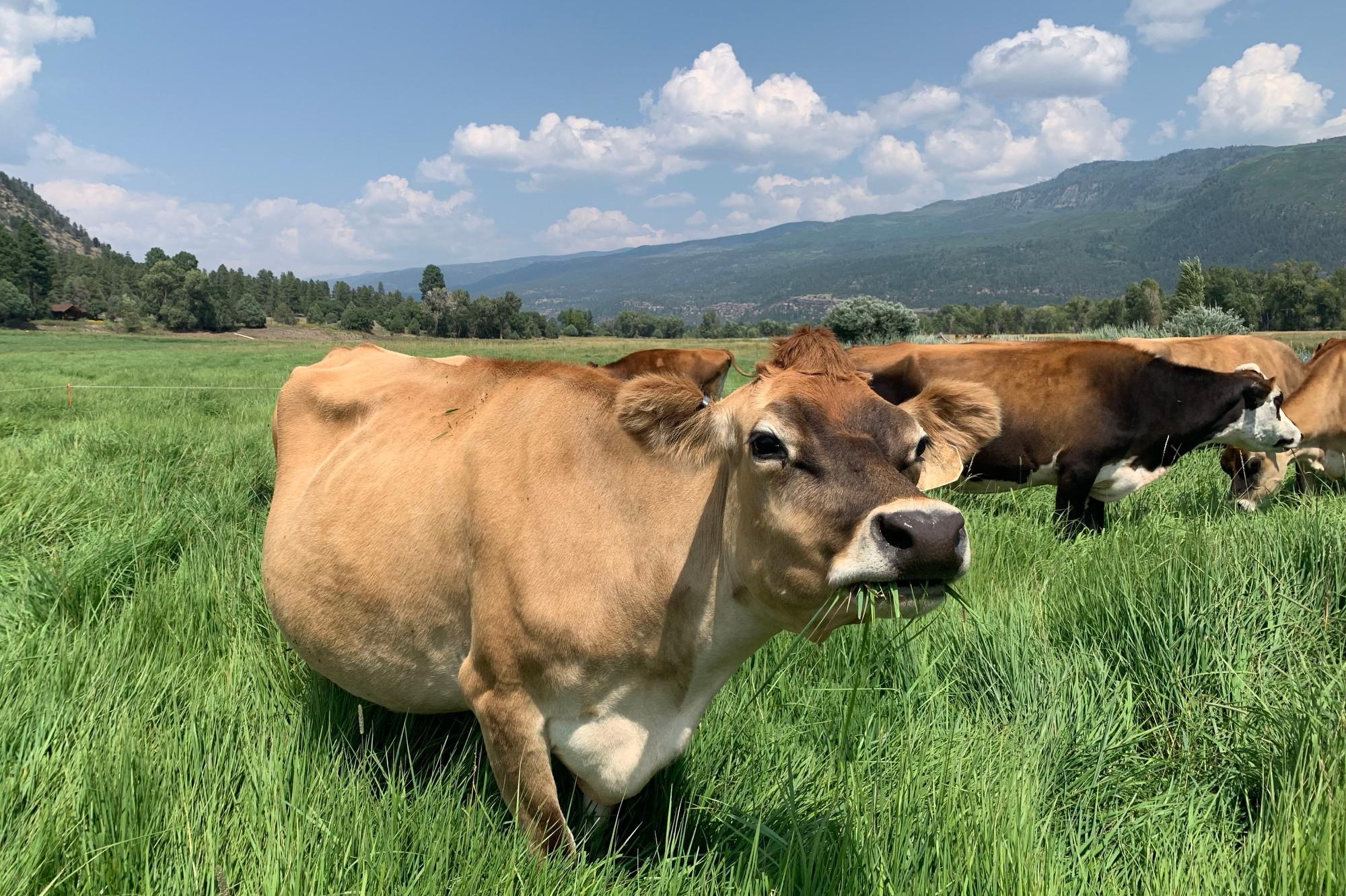
Bright-blue sky above him, tall grass at his feet, Dan James stood in one of his favorite spots: pasture for his “beautiful bovines” at James Ranch, outside of Durango.
“Hey, cow!” he hollered, friendly and steady. “Heeey, cow!”
The dairy cows raised their heads and began lumbering toward the fresh grass, their brown and red bodies splashed with spots of white, and ears that stuck out like side-view mirrors.
Soon, they completely encircled us, the noise of their chomping coming in surround sound.
It was the kind of magical moment I had been hoping for on this road trip.
Many months ago, my friend, farmer Harrison Topp and I began planning this journey over email and phone calls. We wanted to check in with farmers, ranchers and restaurateurs across the Western Slope and hear how they are navigating a world filled with uncertainty created by the pandemic and a persistent drought.
Topp, who owns Topp Fruits in Hotchkiss, is also the membership director for Rocky Mountain Farmers Union, so he knows agricultural producers all over the region, including almost everyone we met along the way.
As we started our drive from Topp’s farm, he explained the drought, in particular, has made things difficult for growers like him. But, he said, they keep going.
“We’re stubborn because we love what we do, and we love where we are, and we love what we offer to the world,” he said, smiling as we drove south.
That first stop, James Ranch, is home to much more than cows. Of the five James siblings, four have returned to start businesses on the 400-acre property their parents bought in 1961. As we ate at the ranch’s grill, one of those siblings, Julie James Ott, explained how the pandemic has helped the ranch.
“Well, people are starting to ask the really good question of: ‘Where does my food come from?’” she said, between bites of burger and salad, all produced on the property.
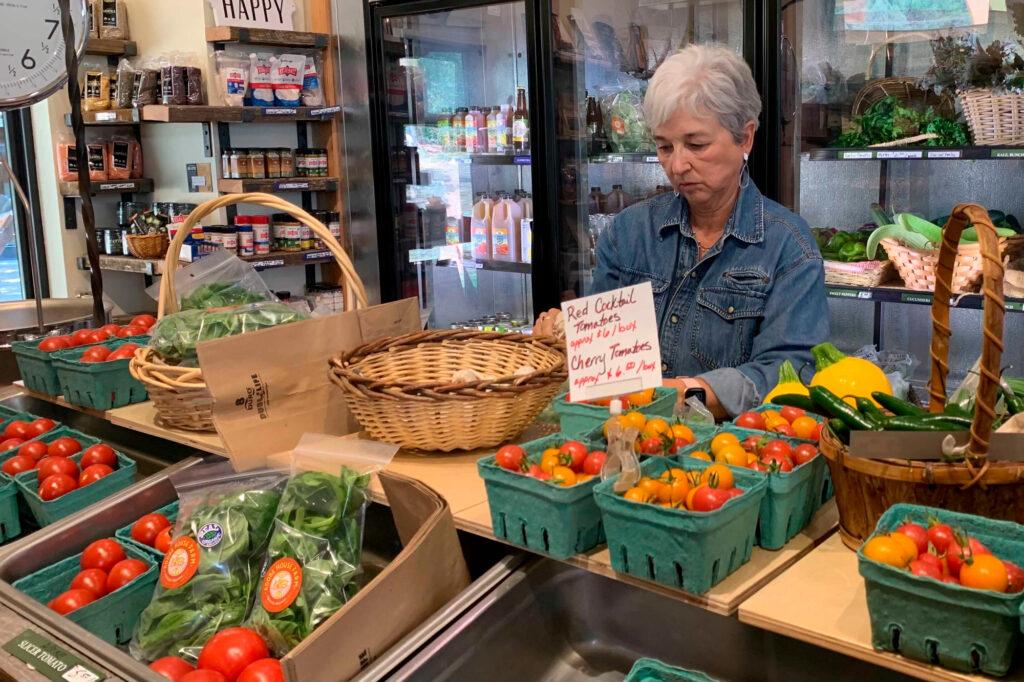
Ott runs the ranch’s market, which has been going gangbusters. At the beginning of the pandemic, shortages of beef at traditional grocery stores drove a lot of customers to the ranch. Now, tourists are wooed by the quaint setting — the ranch is bordered by mountains — but the farm store also gets a lot of locals, too.
“It's super exciting to see people come in and shop for their week,” Ott said. “It's just piles of vegetables and cheese and beef. And it's just so wonderful.” The cheese, in particular, has become so popular that it is only available from the ranch.
Everything from grazing to produce-growing at the ranch is done with regenerative agriculture practices, which can help rebuild soil and improve the water cycle, among other benefits. Julie’s husband, John Ott, explained it’s about looking toward the future — one that includes climate change.
“Building resilience” in your farm is a must, he said, “so then when you do have big storms or the water quality does get worse or all those things, we need to build that resilience into the land. So that when things change, we can adapt.”
'Maybe We're Just In The Wrong Business'
Adjusting to warming temperatures was on the mind of pretty much everyone we spoke to on this trip, even though very few used the term “climate change.” The drought, parching Colorado and the Western U.S., hung over most conversations.
The next morning, at bustling Zack’s BBQ in Hotchkiss, Jason Wrich, a beef producer from Crawford, talked about the stark effects of the drought.
“It’s kind of like, well, maybe we're just in the wrong business,” he said, matter-of-fact. “And unfortunately, we're just in the wrong time.”
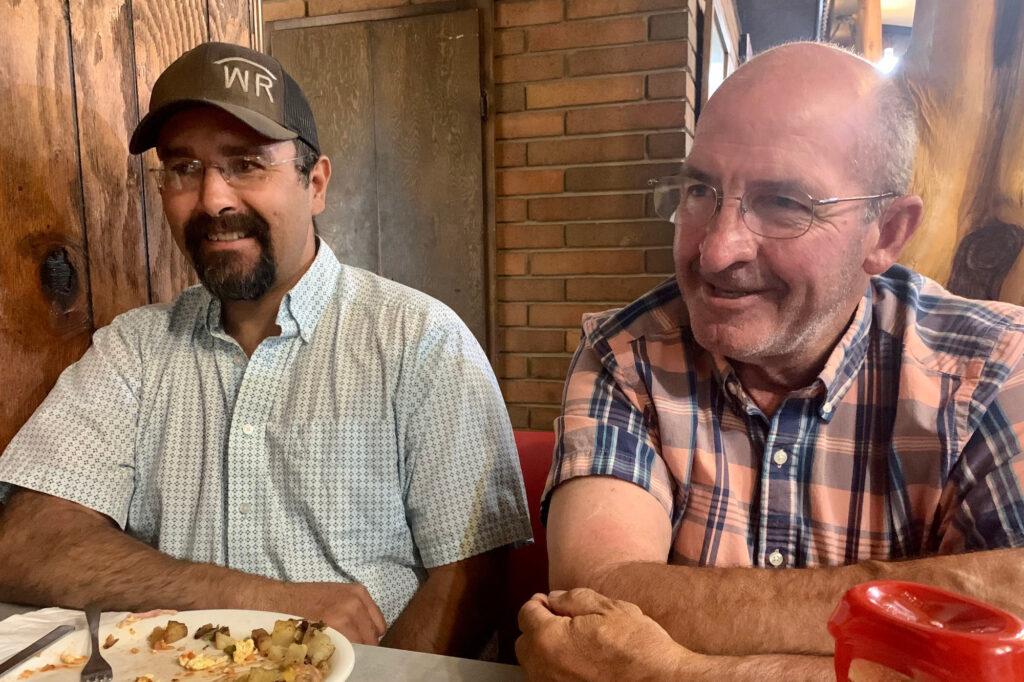
To avoid overgrazing the parched land, Wrich leases acreage all over Delta County and moves his cows “from one pasture to the next to the next to the next.”
Like James Ranch, Wrich is using new ranching techniques. Simply changing grasses can make a world of difference, he explained, and he sees farmers and ranchers in the area trying innovative methods.
“It is impressive what lengths people go to to try and do the right thing by the land,” he said. “And it continues to just blow the doors off of what people thought were social norms, and it’s really exceptional what it does for us.”
One of those social norms, according to Wrich, is regenerative agriculture, which has allowed him to meet the growing demand for locally raised, grass-fed beef with beef that he sells directly to consumers.
As we dig into giant steaming plates (huevos rancheros for Wrich and my buddy Harrison Topp; a ginormous chicken-fried steak for me), we chat with David Price, the owner of Zack’s BBQ.
Price’s father-in-law opened the restaurant years ago. It’s the sort of place with a family chili recipe so secret, his wife carries it in her wallet for safekeeping.
“Cheryl and I have been married for 25 years and I don't even know what the chili recipe is,” he said, grinning but not joking. “I'm not privy to that.”
While many restaurants took a huge hit or even closed in 2020, Price said his spot hardly dipped.
He described how one day during the statewide shut down, he sold $6,000 dollars worth of food, pretty close to normal — while only serving takeout from a tent. Price is a low-key guy but still sounded blown away by how much the community has rallied around his place.
“The support that they showed to the COVID pandemic and stuff is amazing, you know?” he said. “And without the locals, you can't survive.”
Pandemic And Job Worries
Several hours later, Topp and I stopped by a tiny, shiny taco truck outside of Olathe, shaded by a tangle of trees right next to acres of fields. It was busy, with some local teachers grabbing tacos and sodas, but most of the crowd was farmworkers.
Manuel Saldana, visiting from Mexico, said he’s optimistic about agriculture right now, except when it comes to the area’s low COVID-19 vaccination rate.
“A lot of people don't have the shot, don't believe in the pandemic,” he said, referring to the community at large; his crew is vaccinated. If the virus does surge again, the crew, which is made up of workers on a visa, will have fewer job opportunities.
Another worry farmworkers expressed was about a new Colorado labor law that was passed in June. It’s meant to improve working conditions, and it also could require employers to pay workers time-and-a-half for overtime.
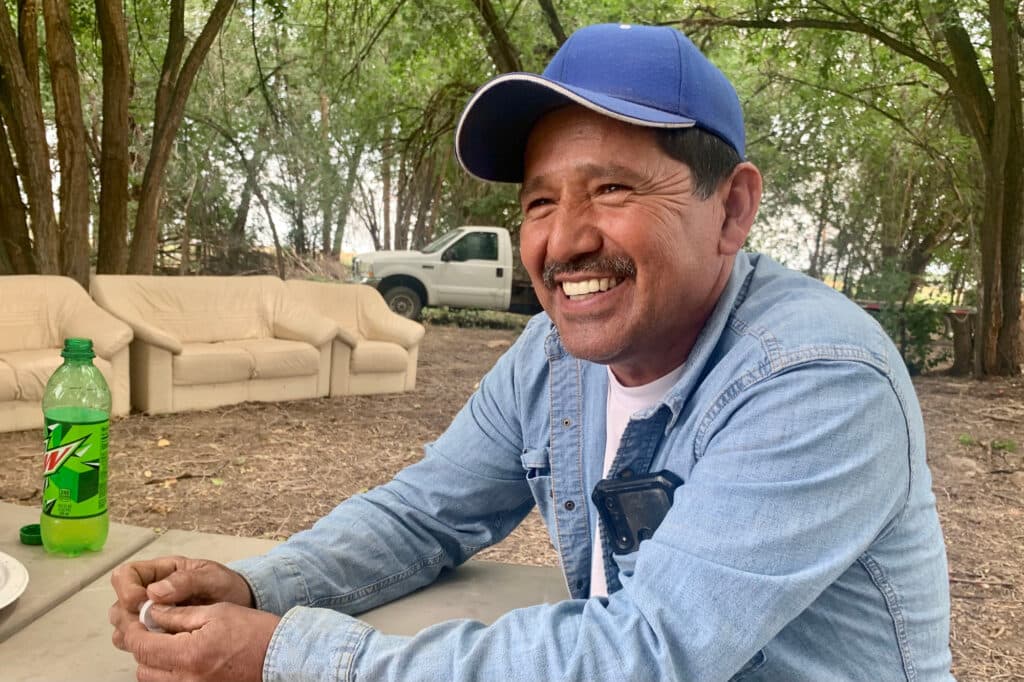
Selso Roque, who has lived in the U.S. for years and raised a family here, said workers are afraid they will lose hours, and he wonders how the law could impact local farms. “What if they decide to close, then we don't have any more jobs?”
That could be a possibility, according to farmer John Harold, also having lunch at the truck. Harold, known for introducing Olathe Sweet sweet corn to the world, insisted that if the time-and-a-half rule really does go into effect, it won’t be feasible to compete with other states that don’t have such rules.
A Rough Road Ahead
What does the future hold? Everyone we talked to was dealing with that question in their own way.
That evening, hours north at the Routt County Fair in Hayden, Topp and I attended a dinner for the Future Farmers of America. With cows bellowing in the background, Topp served ice cream to ecstatic little kids while I talked with 15-year-old Carmen Anarela. She told me farming and ranching are not just about producing food: the cows, horses and sheep also draw curious visitors, Carmen said. People want to be steeped in Western culture.
“You know, agriculture plays a huge role in bringing people in here,” she said. “So, I think it's an incredible industry and it's very important in our state.”
But that doesn’t change how difficult it can be to make a living this way. For every agriculture success story in Colorado, there are many tough ones.
Shiloh Whaley, a local rancher who works with Carmen and other FFA kids, didn’t mince words as she talked to me about the drought. It’s made it difficult for ranchers to get feed and water for their cows, she explained. Like many people she knows, Whaley and her husband have had to pare down their herd.
“We cut in half last fall and then we cut in half again this spring, and we'll probably cut it in half again this fall,” she said, choking back tears. “You work hard for it to go away.” But, she said, “we'll figure it out.”
She calls it “rolling with the slams,” just like people did in the Dust Bowl. The FFA kids give her hope, as do her four children who are 7th-generation ranchers.
“They definitely have a rough road ahead,” she said. “But I'm excited because they got a lot of fight, and they’re pretty stubborn.”
Editor's Note: Jason Wrich's name was originally misspelled. It has since been corrected.

